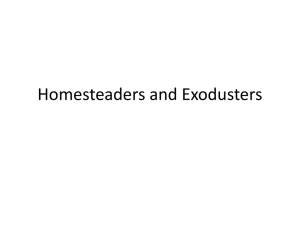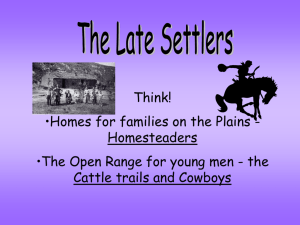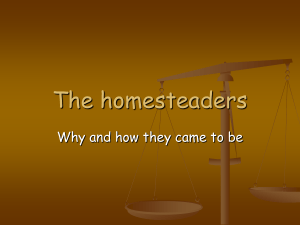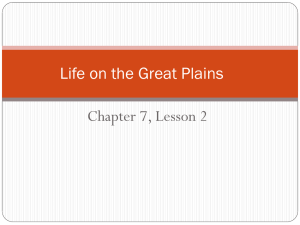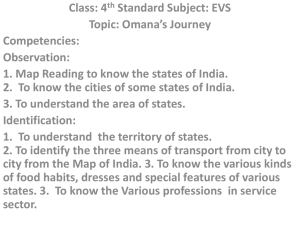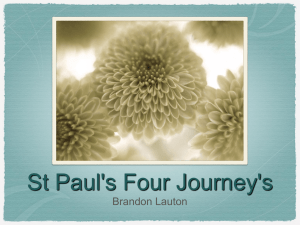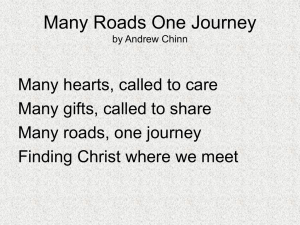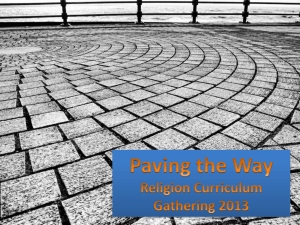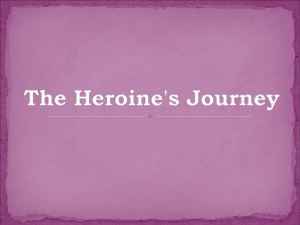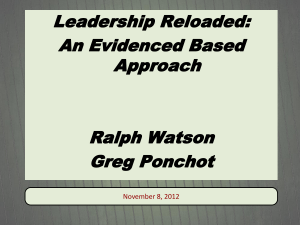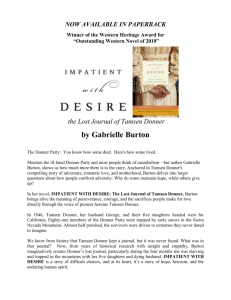Slide 1 - Paignton Online
advertisement
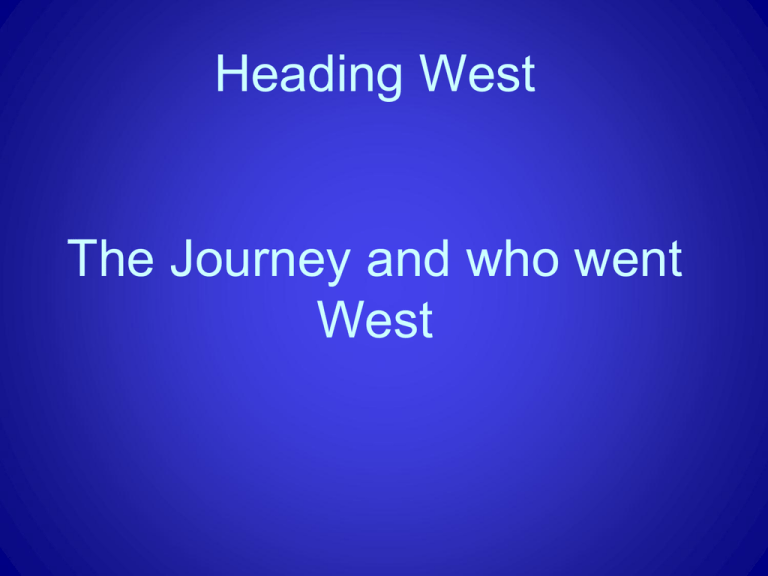
Heading West The Journey and who went West The Journey The journey west to California was 3800 km long. Main route taken. Who went west? The Sagars • Henry Sagar, moved his family west • 1844 the Sagars and their six children were in St Joseph, Missouri. Then he took his family to Oregon, and joined up with other pioneers • Altogether there were 323 people and 72 wagons in the Sagars’ group • The Sagars shot too many buffalo when they rested near the Platte river, far too many for them to use. • One of Sagars’ daughters had an accident on 1st August as they passed Scott's Bluff, she jumped off a moving wagon. • Many of the Sagar travellers suffered from ‘camp fever’. • All the children were orphaned before they completed the Journey. The Goulds • The Goulds left for the West in 1862. • The Goulds passed through an Indian village and swapped moccasins and lariats for money, powder and whisky. • They experienced deaths and had to bury people on the plains as they couldn’t take dead bodies with them. The Donner Party • 1843 the Donner part started their journey west. • The party was organised by Jacob and George Donner, they were brothers. • They split into different parties and set off at different times, they left trails for the other parties to follow. Who Else? • Many other groups of people went West during 1840 – 1895. • A few of these were……. The Mormons The new leader of the Mormons decided to go where Joseph Smith refused to go. He had heard of an area off the Oregon Trail called the Great Salt Lake which was isolated and outside the control of the US government. He agreed with the Illinois authorities that they would go as long as they were safe until then. By now Smith had 27 wives! In total 16,000 followers were to trek west. Young led a Pioneer Band of settlers to go ahead of the others, building shelters and planting crops for the rest of them. Their journey was broken up into manageable chunks. The winter of 1847 was bitter cold though and over 700 of them died! The miners – The ‘Gold Rush’ In January 1848, a carpenter by the name of James Marshall was fixing a watermill belonging to John Sutter of Sutter's Fort, near the small town of San Francisco in California. He saw something shining in the stream - it was GOLD! News of this discovery spread like wildfire and was another big 'PULL' for people to head west. Homesteaders Look at the house. It is made out of lumps or sods of earth. The family who proudly pose for this photograph have built this home themselves with hardly any building materials. These people were known as the homesteaders and their homes called sodhouses. Many thousands of them moved west from the 1850s onwards to begin new lives. They came from the east and from Europe - mainly England, Germany and Sweden, to escape poverty and over-crowding and sometimes to escape religious persecution. Many more people went west after the US Civil War ended in 1865. Thousands of freed black slaves became homesteaders. The Map The Plains is the flat bit in the centre. As it is thousands of miles from the sea the temperature differences between winter and summer are huge! There are often droughts in summer and heavy snowfalls in winter. Freak weather conditions like tornadoes (twisters) and massive hailstorms with hailstones the size of golf balls are not uncommon! The North of the Plains is very different from the South. The Route Manifest Destiny The idea grew up that white Americans were superior, and that it was America's Manifest Destiny (obvious fate) to expand and encourage 'the American way of life' on the Great Plains. The writer Horace Greeley, who popularised this idea, advised Americans: 'Go West, young man'.

